Trending
Opinion: How will Project 2025 impact game developers?
The Heritage Foundation's manifesto for the possible next administration could do great harm to many, including large portions of the game development community.

Featured Blog | This community-written post highlights the best of what the game industry has to offer. Read more like it on the Game Developer Blogs or learn how to Submit Your Own Blog Post
Star Wars Galaxies has been controversial for years thanks to a series of design decisions made both before and after launch. Among these was how Jedis were handled. Here's the design postmortem!

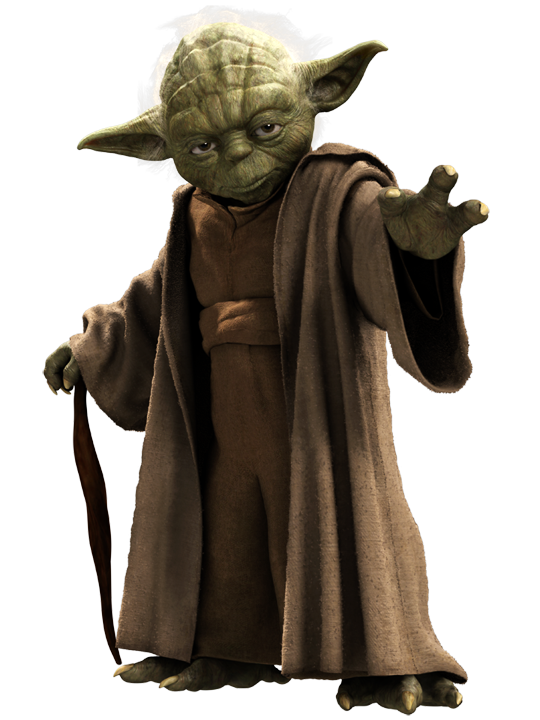 Continuing here with the questions that were sent in by Jason Yates! Yesterday it was the TEF system... today it's Jedi! Some of this stuff has been told before, but it's actually kind of hard to find it all in one continuous tale. I have to preface this with a huge huge disclaimer, though: it's been fifteen years since this particular story started, and a dozen since it ended. My memory may well be faulty on many details.
Continuing here with the questions that were sent in by Jason Yates! Yesterday it was the TEF system... today it's Jedi! Some of this stuff has been told before, but it's actually kind of hard to find it all in one continuous tale. I have to preface this with a huge huge disclaimer, though: it's been fifteen years since this particular story started, and a dozen since it ended. My memory may well be faulty on many details.
#2 What were the thoughts on Jedi and why were such drastic changes made in patch 9 to the entire system?
-Jason Yates
Well, my opinion is Jedi are evil. Heh.
You see, Jedi are an immense attractant to players, readers, viewers. As a kid, I too waved around plastic lightsabers (we kept bending them as we struck one another, I am pretty sure my mom got really sick of buying new ones). Who can resist the fantasy of having this awesome sword, effectively magical powers -- mind control, telekinesis, telepathy, and more -- and of course, the classic Hero's Journey? I mean, it's basically an ideal play scenario.
Except that of course, you quickly realize that by comparison, everyone else sucks. I vividly remember granting Han Solo access to the Force when we played with the original action figures, because, well, he was too cool a character not to have them, you know? (We indicated Force powers by bending the legs all the way backwards, sort of a hip-shattering L shape, and then they could fly!) And let's be honest, how long would Han Solo have lasted against Darth Vader? About two seconds. In fact, Kyle Katarn, the most popular Star Wars videogame character, basically is Han Solo with Force powers.
This is all fine and dandy in games where you play a Jedi and mow down Stormtroopers by the hundreds. It worked great in the Jedi Knight games. But Jedi are notably absent from the gameplay of other types of Star Wars games, and for a good reason. They are a discontinuity. They are too powerful. They are an alpha class. Not a problem is a single-player environment, but what do you do with them in a multiplayer setting where some people are badass Han Solo types who will always lose?
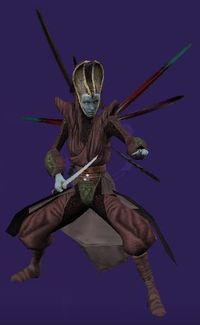 This same issue had come up in the Expanded Universe books and stories. You basically have the problem that
This same issue had come up in the Expanded Universe books and stories. You basically have the problem that
people identify with Jedi
they're rare
they're incredibly powerful
This meant that creators laboring in the universe had a few choices:
invent new stuff as powerful or more powerful as Jedi (which was done more than a few times -- General Grievous, the Witches of Dathomir, the World Razer, a living planet called Zonarma Sekot, The Ones -- OK, it was done a zillion times, which just proves my point).
tell stories with no Jedi in them, as in the original Han Solo books by Brian Daley. (Fun books, btw: The Han Solo Adventures: Han Solo at Stars' End / Han Solo's Revenge / Han Solo and the Lost Legacy)
Of course, the demands of games focused on Jedi also meant that the powers of Jedi kept having to go up, too! I mean, people actually complained when you didn't start as a powerful Jedi in Jedi Knight II, and eventually, we got to the ludicrous heights of Starkiller in the Force Unleashed games: "sufficiently powerful enough to rip a million-ton Star Destroyer out of orbit and slap Darth Vader around like he owed him money."

We weren't the original Star Wars Galaxies team. There's a complicated history there that there's no point going into, but suffice it to say that there was a game design prior to the one that our team did. It was class based, used a "cone of fire" real-time action combat system, and I am pretty sure Jedi was one of the classes. There are a whole bunch of reasons why it went away in favor of our design, and I'm not going to go into them (I don't even really think it was that team's fault).
When our team got going on Star Wars, we didn't have an office yet. We worked out of J. Allen Brack's house (he went on to be incredibly important to the history of World of Warcraft); in fact, three of the team lived there. I distinctly remember having conversations with Chris Mayer in the living room of that house -- probably between bouts of Soul Calibur, we were all hooked -- and trying to figure out what the heck to do with Jedi. At this point, we didn't yet have the game's vision document, we didn't yet have a game design, or anything. So the statement "live in the Star Wars Universe" was not yet our guiding star. But we knew already that having an alpha class in an MMO was going to be a real problem. The problem was clear:
Everyone wants to be a Jedi.
Jedi are rare during the original trilogy.
Jedi are super powerful.
Of these three pillars, something would have to give.
My first thought was, "make them NPC only." After all, at the mandated time period in the films, there weren't any around. If you read into the Expanded Universe, there's all sorts of them in hiding, for the reasons given above. But evn all of those weren't viable solutions for us. We were mandated to fall between the destruction of the Death Star and the Battle of Hoth. That's a pretty narrow little sliver: the official timeline has it around 2 1/2 to three years. The number of of Force sensitives is small enough that Darth Vader is running around with a Death Squadron trying to find just the one who did the trench run. Allowing tens of thousands of players to be Jedi would surely be a bit jarring.
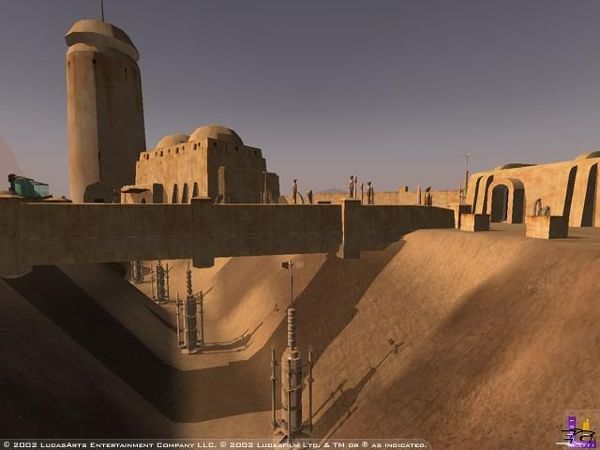 It also would have destroyed any semblance of grouping, much less the larger scale interdependence that we were already thinking about for the game. Given a choice between Jedi and, well, any other combat role, you'd pick Jedi. We'd probably have non-combatant types around... but maybe less of them, if everyone wanted to be a Jedi instead. I think the general reaction even among the team, though, was horror. "A Star Wars game and you can't be a Jedi??"
It also would have destroyed any semblance of grouping, much less the larger scale interdependence that we were already thinking about for the game. Given a choice between Jedi and, well, any other combat role, you'd pick Jedi. We'd probably have non-combatant types around... but maybe less of them, if everyone wanted to be a Jedi instead. I think the general reaction even among the team, though, was horror. "A Star Wars game and you can't be a Jedi??"
The second thought was, "make them not powerful." This was in fact the approach that original design had taken, and pretty much what happened after the NGE as well. As one class out of several, Jedi simply don't have the powers they do in the films. Oh, they look like they do, but in practice their force lightning is just a blaster bolt and they are balanced to match the other classes. No Starkiller here.
The problem here, of course, is that the fantasy is shattered. Not only would there be Jedi all over the place, but they wouldn't be special on any axis. And in this time period, Jedi were special. Oh, we'd had seen them be rather non-special, in The Phantom Menace; the film came out the year before this early development phase, and in it we saw Jedi as more like government diplomats, on the level of a trade attache or something. (We also learned that it was because they had won a genetic lottery, but that's beside the point).
But the idea of Jedi as rare and powerful was pretty ingrained. So the idea of making them common and not that special didn't sit well at all.
There was a third option that came up, and I pitched it to LucasArts in a casual conversation with Haden Blackman, who was our producer there (today he's known for some pretty kick-ass comics writing). It survived about thirty seconds.
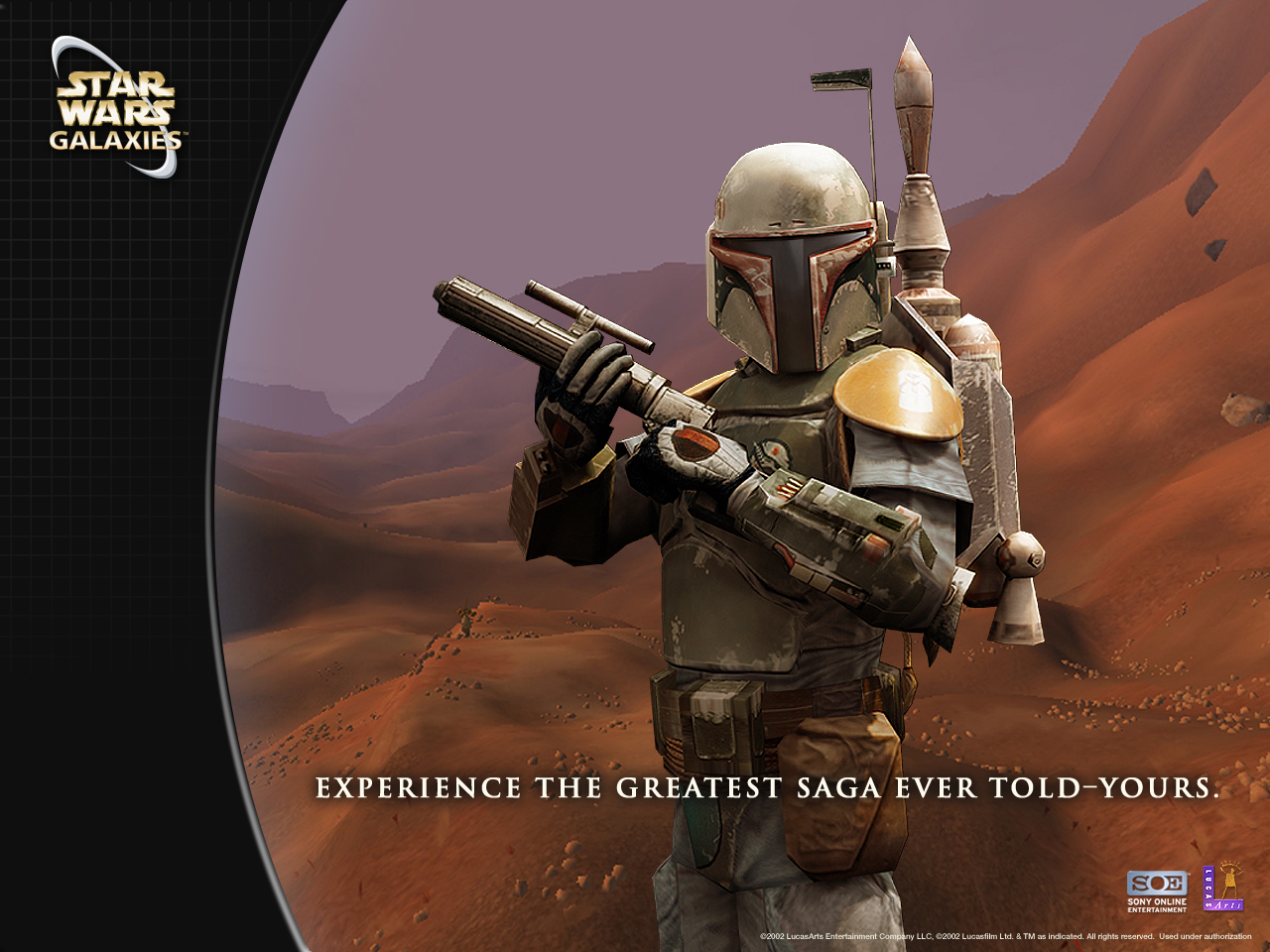 "Just change the time period," I said. This would have allowed us to have way more Jedi, because in the Expanded Universe we have a Jedi Academy during this time period. It would have cost us Darth Vader and Palpatine, Jabba the Hutt and... well, not that much else. Even Boba Fett climbed out of the Sarlaac. The Empire was still quite strong, according to the Timothy Zahn books
"Just change the time period," I said. This would have allowed us to have way more Jedi, because in the Expanded Universe we have a Jedi Academy during this time period. It would have cost us Darth Vader and Palpatine, Jabba the Hutt and... well, not that much else. Even Boba Fett climbed out of the Sarlaac. The Empire was still quite strong, according to the Timothy Zahn books
There were probably a pile of logistical reasons why this couldn't happen. I shudder to think of the approval process that might have been required, especially to go back and amend an existing deal. The fact that the game development process was being rebooted was a touchy subject in itself; early chats with Haden were marked by a lot of "and what about X, is that staying?" All in all, even though it was probably the cleanest solution, it never had a chance for reasons that had little to do with game design.
So, that left us at the three pillars, intact. Powerful, rare, and in the hands of players. We were screwed.

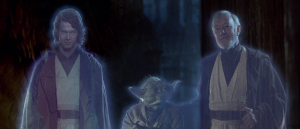 I had a brainfart that never made it past those early days, there in that house. The idea took inspiration from Hardcore mode in the Diablo games. We would offer a Jedi system that effectively gave a different way to play the game. A method that kept Jedi rare, powerful, and yet allowed everyone a shot.
I had a brainfart that never made it past those early days, there in that house. The idea took inspiration from Hardcore mode in the Diablo games. We would offer a Jedi system that effectively gave a different way to play the game. A method that kept Jedi rare, powerful, and yet allowed everyone a shot.
Every player would have a special character slot available to them, distinct and parallel from their regular character. This character would be locked into one profession, one class: Jedi. They'd start out weak as a kitten though, untrained in combat or anything, and with barely any Force abilities at all. Luke without womprat-shooting experience maybe.
Although the design wasn't done yet, we knew that the game would be classless. So this pathetic Force Sensitive character would be able to gain better Force powers by earning Force XP by using the Force. They could also go off and learn other skills. But either way: if they died, that was it. They were dead. Reroll. Start over. It was that dreaded word: permadeath.
In the corner of the screen, there would be a timer running logging how long you had managed to survive. It was your score, for this weird little minigame. The name of the game was survival, but it was rigged.
You see, the moment you used Force powers within view of anything or anyone Imperial, or indeed any player, they could report you to the Empire. To Darth Vader's Death Squadron in fact. And that generated someone to come after you. After first, just lowly Stormtroopers. Eventually, cooler characters, such as some of the bounty hunters like IG-88. Eventually, really cool ones like Boba Fett or fan favorite Mara Jade. 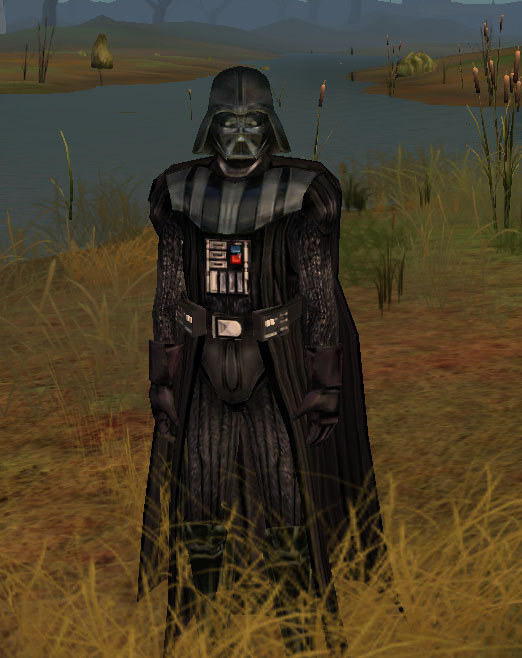
These would be brutal fights. Odds are you'd just die. So hiding and training very carefully would be essential. But it wouldn't matter, of course. As you advanced, your powers would get "noisier" and cooler. You wouldn't be able to resist using Force Lightning in a crowd, or equipping your lightsaber in view of some Imperials. And eventually, after Boba Fett and Mara Jade and everyone else had failed, well, that would be when Darth Vader himself bestirred himself to take care of the little problem.
And you would die. It would be rigged.
Your time would go up on a leaderboard, and everyone would be able to ooh and aah over the hardcore permadeath player who managed to get all the way to seeing Darth Vader and getting her ass kicked. As a reward, if you managed to make it to Jedi Master, your very last skill would be "Blue Glowy." You'd unlock a special emote for your main character slot that allowed them to summon up the ghosts of every Jedi who had made it that far. So all the bragging rights would carry over to your other character. Heck, I had a picture in my mind of the most amazing player summoning up not one, but a whole set of them -- the most badass player would have a coterie of Jedi advisors, hovering around their campfire, as they showed up.
The response to this idea was pretty much "Permadeath?!?" And so Hardcore mode never happened.

Now we hadn't managed to remove a pillar, we'd added one. Not a step forward. 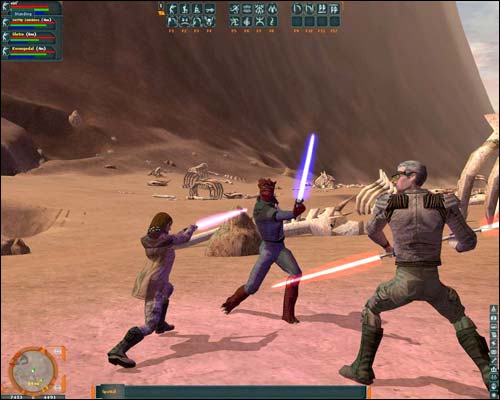
I am pretty sure it was in conversations with Chris Mayer (our lead server programmer) that we hit on the notion of making the process of becoming a Jedi effectively a personality test. As I recall, the question was around "if we're going to have all these Jedi around, and need to keep them rare but acting like they do in the movies, that almost calls for a roleplayer only profession, or some other way to make sure that only those who actually deserve to be Jedi become one." See, we knew that Jedi would be the top target above all for the Achiever and worse, the Killer types, in Bartle lingo. It was too attractive a target, and if we made the way of becoming Jedi involve quests, or grinding points in some fashion, it would inevitably go to the powerhungry. But really, we wanted a system that was more for the Explorer type: someone who savored the game.
This meant we couldn't do something with a standard quest. Too susceptible to the issues with static game data in large communities. Any solutions would get shared, and the rarity would fall by the wayside.
I pulled out a very old idea, so old it was from the MUD-Dev days, about a spellcasting system that used spell words, but the words were different for every player (didn't Asheron's Call end up doing something of the sort?). That way recipes couldn't be shared, but just the broad idea could. That seemed like it had some promise. So we started thinking of tasks or quests that players could do that could vary by player. And I am pretty sure it was Chris who said "what if the tasks were from different Bartle types?"
And so we landed on the system:
There would be a large pool of possible actions a character could undertake, divided into four categories, one for each Bartle type.
These actions would include things like "visiting the highest location on a given planet," "using this specific emote," "killed this particular creature," "learned this skill," "did five duels," "entered this battlefield," "crafted this item," etc. Some of the exploratory ideas were taken from Seven Cities of Gold, and others from badges we expected to give, and so on. (Remember, achievements didn't exist yet. The idea was almost certainly copied from online games).
Every player would randomly roll up a different set of actions they needed to undertake. Their personal list would include some items from each of the four categories so that it was always balanced across playstyles.
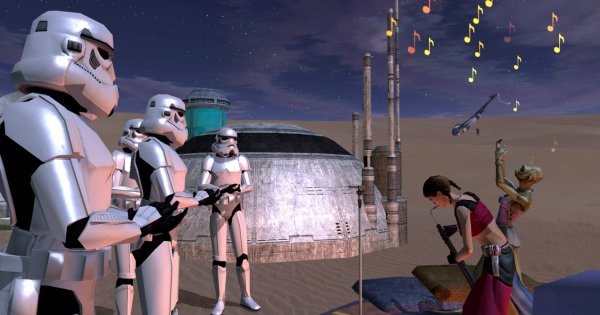 The player would not be told that they had checked off an item.
The player would not be told that they had checked off an item.
The player would not be told that they had checked off all the items, either -- they would be notified of Jedi status the next time they logged in.
We wouldn't tell even the development team how exactly it worked. Most of them didn't know.
Yes, it was absolutely security through obscurity, which is exactly what security people tell you not to do. But it had some great advantages.
Nobody would know how to become a Jedi, so all those obsessive grinders and walkthrough readers wouldn't be able to do it by rote. And yet we could tell everyone with utter honesty that anyone could become a Jedi.
It would be pretty rare. A player who actually engaged in all the different aspects of the game, who moved across playstyles that freely, would be highly unusual.
We could keep Jedi superpowerful, since they were so rare. Odds were that any player who had done that breadth of things was already maxed out in power anyway.
Given the level of investment required at that point, permadeath seemed like it didn't fit, so that went away.
At that point, all that would need to happen would be implement a truly expensive set of custom animations and skills. So, we made the plan, a doc was specced out that included the list of possible tasks, and there it sat until we got to it on the schedule.

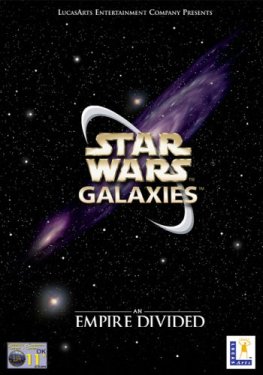 We never got to it on the schedule. SWG's development was hurried. The whole game was made between September of 2000 and June of 2003, which is an insanely abbreviated development time. For comparison, World of Warcraft was announced in 2001 and launched after probably five years of development. In SWG's case, sure, there had been a bunch of time invested in the game with the earlier team, but there was virtually nothing we were using. Effectively, we had started over from scratch. The originally announced availability date was in 2001, which was already impossible. As a result, we were already insanely behind by the time we hit the alpha date. It was September of 2002 or thereabouts and so little was working that we did what eventually turned out to be an incredibly valuable testing process: we inveted only 150 people in, and we focus tested each feature as it was ready.
We never got to it on the schedule. SWG's development was hurried. The whole game was made between September of 2000 and June of 2003, which is an insanely abbreviated development time. For comparison, World of Warcraft was announced in 2001 and launched after probably five years of development. In SWG's case, sure, there had been a bunch of time invested in the game with the earlier team, but there was virtually nothing we were using. Effectively, we had started over from scratch. The originally announced availability date was in 2001, which was already impossible. As a result, we were already insanely behind by the time we hit the alpha date. It was September of 2002 or thereabouts and so little was working that we did what eventually turned out to be an incredibly valuable testing process: we inveted only 150 people in, and we focus tested each feature as it was ready.
Yeah, that means we tested chat for the first time in September of 2002. And launched less than a year later. Combat came online in November or something. And content tools came online... never.
Well, no, not never. Just hardly ever, if that makes sense. SWG hit its "code complete" drop dead date around February. What you think of as "the game" was mostly built between August and February. We had building tools and the like, and we had a rich set of game systems, because sandbox and simulation-heavy games can be made much much faster and more cheaply than content-heavy games. But adding the required content to the game starting in February, to finish in May? Just not possible.
We had to go through and make tough choices on cuts. As early as that Christmas I was already triaging the entire game design. My criteria was "can the game function without this." Not "will it be good." Will it work at all. This led to often weird priorities based on the fact that the game relied a lot on player interdependence. You could probably have postponed Image Designer (the profession that involved one player changing another's appearance). But it was actually our first scripting test because it was so tiny, and so it made the cut because it got done way early and took so little effort. You could push off player cities because no players would be advanced enough to make one. You could always walk, if there weren't vehicles. It would suck -- the planets had been planned assuming landspeeders! But you could get there. But we couldn't change out, say, dancing, because the healing of battle fatigue was a critical portion of the game loop. (Spaceflight was never intended to be in the initial launch -- we knew on day one that was out of reach).
I watched so many features fall apart during this period.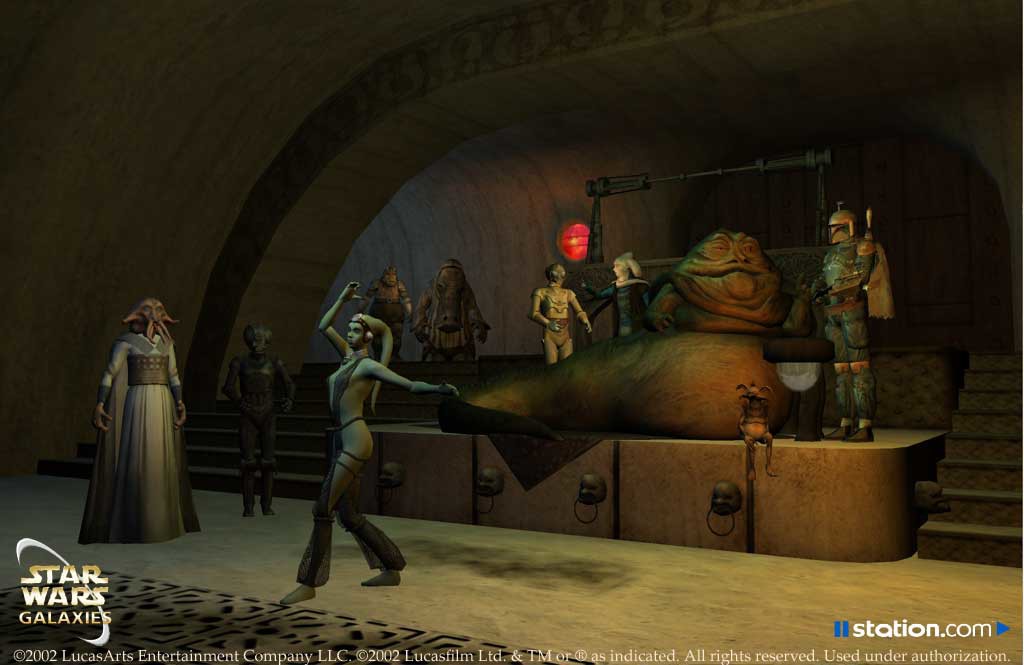 All those characters, so little dialogue. Game scripting was in Java, and where I had hoped our designers would be able to script cool intricate quests, or even build us a quest system, we got rather iffy content that seemed to break constantly even though the designers tried hard. We had to resort to mission terminals, which were just one of many types of content that were supposed to be present, as our main content activity. I had dreamed of a Jabba's Palace where every single character had the full backstories from the books, and you could do quests for all of them. We didn't have a template-style quest system working; at one point Scott Hartsman came out to do a sanity check of our development, and I suspect he found me rather full of despair, as every item he enumerated should be there for content development was absent. This meant we sure as heck weren't going to manage to get the player contract system whereby you could be given a quest by another player. Dynamic POIs were worked on for a month or two, then basically abandoned because of terrain engine issues and scripting difficulty.
All those characters, so little dialogue. Game scripting was in Java, and where I had hoped our designers would be able to script cool intricate quests, or even build us a quest system, we got rather iffy content that seemed to break constantly even though the designers tried hard. We had to resort to mission terminals, which were just one of many types of content that were supposed to be present, as our main content activity. I had dreamed of a Jabba's Palace where every single character had the full backstories from the books, and you could do quests for all of them. We didn't have a template-style quest system working; at one point Scott Hartsman came out to do a sanity check of our development, and I suspect he found me rather full of despair, as every item he enumerated should be there for content development was absent. This meant we sure as heck weren't going to manage to get the player contract system whereby you could be given a quest by another player. Dynamic POIs were worked on for a month or two, then basically abandoned because of terrain engine issues and scripting difficulty.
Professions fell out. The designer who was doing the skill trees couldn't manage to lick the problem of trees that were of varying sizes and interconnected in unique ways; originally, the trees were all different, and there were "surprise" professions that might appear if you mastered two skills from disparate professions, more like a skill web. Said designer left the company for another job elsewhere, and the producer made a command decision, created the skill onions, and we had to do those. This meant that professions that were meant to be tiny, like Image Design, had to bloat out to fit a rigid structure, which actually increased their scope. Other professions that could have had many more skills or skill lines in them had to conform to the rigid four-track onions. Some were cut altogether, including my beloved Writer profession, and Miner, and some others.
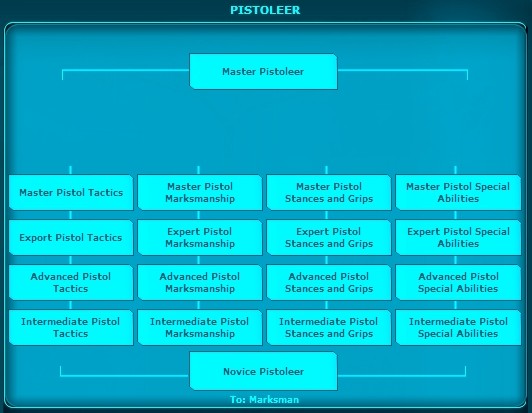 We learned during beta that our deployment hardware was going to be less powerful than we had expected. As a result, we couldn't compute the really nifty procedural terrain on the servers as far out as we had hoped. As a result, our range for combat fell in half or more. This actually broke everything, because the new range was smaller than the minimum optimum range for rifles and snipers. Creatures couldn't pathfind, suddenly. In alpha testing, our AI was way smarter than it was at launch. Pathfinding was supposed to include things like creature emotional state affecting the paths they chose -- e.g., you could stampede a scared critter right off a cliff, and different creatures would attempt different slopes based on how scared they were. Instead, even the basics of whether they were scared of you or not started to not work well. Dynamic spawns that affected terrain couldn't adequately check to see if anyone was there, so buildings would spawn on top of someone else. I don't remember exactly when we realized we had to settle for 2d collision instead of 3d, which meant you couldn't step over a short wall, but that made nobody happy, and I had to defend it on the forums.
We learned during beta that our deployment hardware was going to be less powerful than we had expected. As a result, we couldn't compute the really nifty procedural terrain on the servers as far out as we had hoped. As a result, our range for combat fell in half or more. This actually broke everything, because the new range was smaller than the minimum optimum range for rifles and snipers. Creatures couldn't pathfind, suddenly. In alpha testing, our AI was way smarter than it was at launch. Pathfinding was supposed to include things like creature emotional state affecting the paths they chose -- e.g., you could stampede a scared critter right off a cliff, and different creatures would attempt different slopes based on how scared they were. Instead, even the basics of whether they were scared of you or not started to not work well. Dynamic spawns that affected terrain couldn't adequately check to see if anyone was there, so buildings would spawn on top of someone else. I don't remember exactly when we realized we had to settle for 2d collision instead of 3d, which meant you couldn't step over a short wall, but that made nobody happy, and I had to defend it on the forums.
Databases were clearly going to be a huge issue, thanks to the crafting system, which had turned out awesome but also considerably more detailed than specced. A large pile of unique stats needed to be tracked on everything. Space was at a premium; character records were enormous. This caused problems when players moved between physical servers or across server processes, because of the time required to copy the data and the race conditions that could emerge.
We were sent a literal army: dozens of QA and CS people were bused in from San Diego to desperately try to build out all the planets. They had to learn the tools and build little points of interest. We were desperately short on managers; Cinco Barnes, who had been just leading the content team, had to manage everyone on the design team -- dozens and dozens of people -- while the producers and I basically took on the job of hotspot firefighters, going from problem to problem to problem to fix them as efficiently as we could.
Oof, these paragraphs felt like opening a vein. SWG fans, you have no idea what the game was supposed to be like, and how weird it feels to hear adoration for features which to me ended up being shadows of their intent. Don't get me wrong, the team did heroic, amazing work. All of these issues end up being my fault for overscoping or mismanaging, the producers fault for not reining me in, or the money people's fault for not providing enough time and budget. The miracle is that we pulled it off at all.
You can see where this is going. There we are, out of time. And there's this big looming must-have system that is really, quite complex, adds a ton more tracking, and which we just didn't have time for. Oh, we could push implementation of some of it to post-launch; after all, Jedi were going to be rare, so we had months before any Jedi Masters demanded that their Force Lightning actually, you know, work. But we couldn't push off the tracking, because that was what the core was: whether you could actually start working on being a Jedi. We'd be lying about Jedi being in the game at all if at least thatpiece wasn't there. 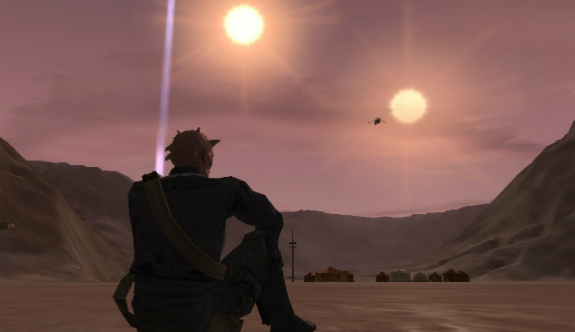
Chris or J comes to my office one day. I don't remember what I was doing exactly, and I don't remember who it was exactly. Re-speccing PvP, possibly, or trying to get decent data so I could see if combat was balanced (which it wasn't, and never was). He tells me, "We can't do it. We can't gather and track the data. We don't have the time to do it. We need a new system."
My brain fuzzes out. "It took weeks to figure out any solution at all. We can't do a content solution, we have no time and no tools."
"It's OK, there's an idea. We can't track all of that, we there are some things we are already tracking. Skills. They cover all the different personalities, all the Bartle types. We have socializers and we have explorer skills with surveying and we have combat stuff all over the place... So I am here to ask you, can we just make the randomized list be a set of skills."
I had twelve other things to do. I said yes, and on we went.
It was a fateful decision.

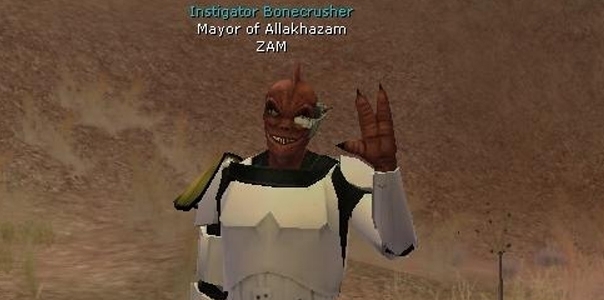 The game launched, barely. It was in such bad shape that we knew we were going to announce its launch to the beta testers and they would crucify us, because they could see perfectly well that the game was not ready. We flew out the top commenters on the forums and told them. Their faces fell. They were beyond dismayed. We threw ourselves on their mercy and asked for their help. Not to lie, but just to tell their fellow players that we were doing everything we could to get the game into decent shape. It was true; we were. We had managed to get a couple extra months from management -- not the six months or a year I had hoped for. Everyone was basically living at the office. We had been so open and honest and communicative with the playerbase on the forums that when we asked for the playerbase's goodwill, we actually got it. (Our community management actually became a case study for how to build collaborative environments with fans that was written about in Convergence Culture: Where Old and New Media Collide
The game launched, barely. It was in such bad shape that we knew we were going to announce its launch to the beta testers and they would crucify us, because they could see perfectly well that the game was not ready. We flew out the top commenters on the forums and told them. Their faces fell. They were beyond dismayed. We threw ourselves on their mercy and asked for their help. Not to lie, but just to tell their fellow players that we were doing everything we could to get the game into decent shape. It was true; we were. We had managed to get a couple extra months from management -- not the six months or a year I had hoped for. Everyone was basically living at the office. We had been so open and honest and communicative with the playerbase on the forums that when we asked for the playerbase's goodwill, we actually got it. (Our community management actually became a case study for how to build collaborative environments with fans that was written about in Convergence Culture: Where Old and New Media Collide
And then when the game launched, it didn't actually work. Like, you couldn't log in. But gradually, we recovered, and started working on the missing features, and did in fact deliver them over the course of the next six months. But many of the cuts had been irreversible, many of the changes permanent. Jedi work continued as the skills were developed, but combat was dramatically out of whack, there was a duping bug to try to find, player housing was getting placed around the entrances to the very few pieces of static content we had and people were effectively claiming dunegons as private property. All sorts of stuff was a mess.
This was the glorious "pre-CU period" that today people recall so fondly.
And I had been offered the role of Chief Creative Officer, in San Diego, before the game had even shipped. I had taken the role, but had stayed working on SWG to try to get it into good shape before I left -- I was going to have to move. Gradually I had to give up more and more ownership over the game, and there were parts of things that simply vanished in the handoff -- probably the most critical of these were metrics around gameplay balance and the economy.

But the game was shaping up. Players had formed governments. Vehicles were very popular. The early game economy, which was intentionally rocky becuse players had not yet developed all the interdependence infrastructure, had started to hum along. Entertainers were going on tour, and few of them were macroing, because they played entertainers because they liked it. People were building supply chain empires and businesses with hundreds of employees. Merchants were making a name for their shops full of custom-crafted gear.
And most importantly, nobody was a Jedi. Nobody cared. They were playing the professions they liked. They were doing what they wanted to do. The secret of Jedi was a secret still, and there were countless theories. Players thought they were being watched and only the deserving would be picked. Players thought that various half-finished bits of content were actually the star tof Jedi quest chains. And meanwhile, players were invisibly checking off items on their secret skill lists.
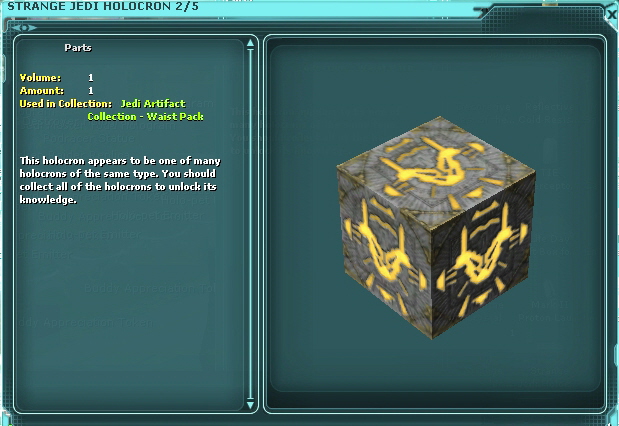 And LucasArts marketing says, "we need a Jedi by Christmas." The rocky launch and general bugginess had cost us a huge number of subscribers. Oh, we were still the second biggest MMO outside of Asia, behind EverQuest, but the expectations were much higher. Many players had simply churned out, unwilling to deal with the general jankiness. But the game was improving by leaps and bounds, and marketing wanted to get a fresh flow of users in now that the game was actually working.
And LucasArts marketing says, "we need a Jedi by Christmas." The rocky launch and general bugginess had cost us a huge number of subscribers. Oh, we were still the second biggest MMO outside of Asia, behind EverQuest, but the expectations were much higher. Many players had simply churned out, unwilling to deal with the general jankiness. But the game was improving by leaps and bounds, and marketing wanted to get a fresh flow of users in now that the game was actually working.
We looked at the rate at which people were unlocking their skill boxes, and did a back of the envelope calculation. It showed that the first Jedi might manifest in... 2012 or so. Marketing was not amused. "Drop hints," the team was told.
I was already half off the team, commuting between Austin and San Diego every week or two. (I would eventually move at the end of the year). But I am pretty sure I was in at least some of the meetings. The decision was made to drop Holocrons, hint boxes that would tell you one of the skills you needed to learn.
The problem is obvious: as soon as three people all have gotten a hint that what they need is to master a specific skill box, the secret was out. It was weak cryptography. As the confirming data poured in that none of the Holocrons involved anything other than skills, the players set themselves with a will to trying to crack their personal codes. And they used the oldest trick in the book: brute force.
They simply started at A and learned every skill. In order. Probability being what it was, most finished when they got partway through. But the problem was this meant playing what you didn't like.
The peaceful dancers who thrived on joking around with an audience and doing coordinated flourishes found themselves tramping around the mud looking for mineral deposits.
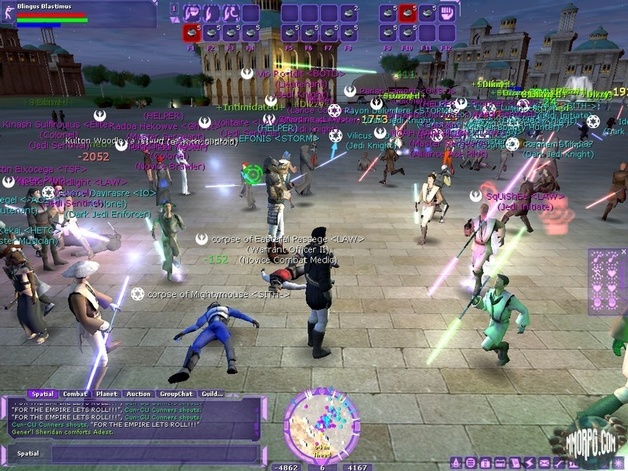 The explorers who enjoyed exploring distant swamps got themselves trapped in medical centers, buffing an endless line of combatants.
The explorers who enjoyed exploring distant swamps got themselves trapped in medical centers, buffing an endless line of combatants.
The doctors who derived their pleasure from helping out people in a support role found themselves learning martial arts or machine guns and mowing down creatures.
The combat specialists who were used to optimizing damage per second in taking down a krayt dragon were instead raising them from babies.
The creature handlers who tended dewbacks had to learn to chop them up and cook them instead.
You get the idea. Everyone started playing everything they didn't like. Oh, some players discovered new experiences they never would have otherwise. Many emerged from this with a new understanding of the fundamental interconnectedness of a society. But most just macroed their way or grinded their way through it all as fast as possible, dazzled by the booby prize of Jedi.
Satisfaction fell off a cliff. I never did see a marketing push for Jedi -- never saw a marketing push for the game at all, to tell the truth. But what I do know is that one month after Holocron drops began, we started losing subs, instead of gaining them. SWG had been growing month on month until then. After Holocrons, the game was dead; it was just that nobody knew it yet.
My handle on the forums had been Holocron.

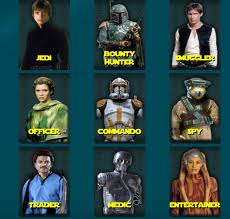 Pretty much every single subsequent change can be traced back to that day. All the panicky patches, the changes, the CU and the NGE, were all about trying to get the sub curve back on a growth trajectory. Some of them were good changes. Most of them were bad, in my opinion. But they can all be traced to me saying "yeah, fine, skills is good enough" in a hurried minute-long conversation on a work day that was probably fourteen hours long.
Pretty much every single subsequent change can be traced back to that day. All the panicky patches, the changes, the CU and the NGE, were all about trying to get the sub curve back on a growth trajectory. Some of them were good changes. Most of them were bad, in my opinion. But they can all be traced to me saying "yeah, fine, skills is good enough" in a hurried minute-long conversation on a work day that was probably fourteen hours long.
Nobody much liked Holocrons as a Jedi mechanism, of course, and the playerbase felt betrayed. It seemed like a cruelly mechanistic trick, after the dreams they had had; a system that worked better when nobody knew how it worked. And it had worked, for a while. People dreamed of Jedi, and were content, and had fun. They were attainable, powerful, and absent, and the rat race wasn't a factor.
Eventually, the team tried new things. They did a quest chain instead, the Jedi Village. To be honest, I never played it, and I was not only off SWG but very out of the loop by the time it went in. The genie was out of the bottle, though: Jedi was a thing for grinders and achievement-mad powergamers, and a little quest chain was never going to stop them. They were everywhere.
By the time of the NGE, they were a class to choose, as they had been in the original design we scrapped. Not very special. Not very powerful.
I never even logged into the game after NGE, to be honest.
Holocron was my last handle, on any forum. And I never played a Jedi at all.
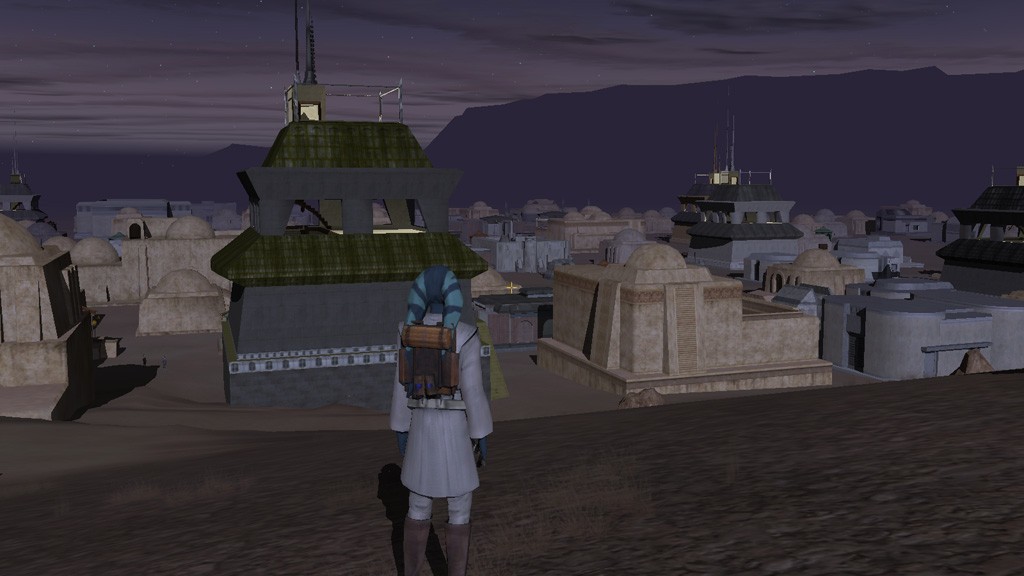
Read more about:
Featured BlogsYou May Also Like